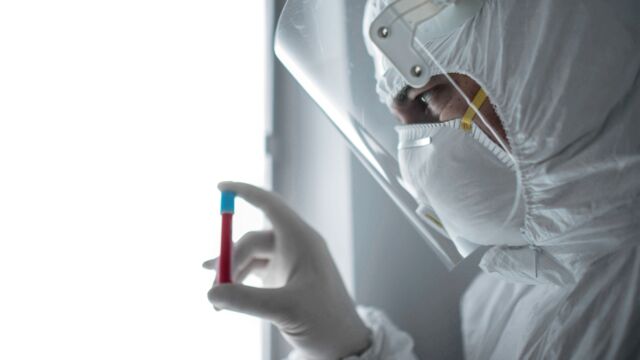The UK COVID strain is now mutating to mimic the South African variant

The coronavirus strain initially discovered in the UK is now mutating again, showing similar characteristics to the South African strain.
The COVID strain discovered in the UK is mutating once again,this time to mimic the concerning South African variant.
Discover our latest podcast
UK COVID strain mutating again
Genome sequencing has shown that the UK covid strain, also known as B.1.1.7 was already found to be up to 70% more contagious than the original strain of the virus. But now, it has mutated again, this time showing the same concerning mutation as the South African and Brazilian strains.
The discovery emerged following door-to-door testing in eight postcodes throughout England after the South African were discovered in the UK with no obvious cause.
More under this adMore under this adFurther testing on Tuesday in Bristol found 11 cases of the concerning mutation in the Kent variant while testing in Liverpool showed 32 cases of the mutation in the original variant. Member of the Scientific Advisory Group for Emergencies (SAGE), Professor Semple explained:
The mutation of most concern, which we call E484K, has also occurred spontaneously in the new Kent strain in parts of the country too.More under this adMore under this ad
Some of the cases discovered have also been shown to have no link with international travel which means that the mutation may actually be much more rife than tests have revealed. Authorities will now continue their door-to-door operation in order to test as many as 80,000 people in England, in order to see just how far this new mutation has spread. Health Secretary Matt Hancock addressed the public highlighting that now more than ever, it is important to stay inside and conform to lockdown measures:
In all these areas it is imperative that people must stay at home and only leave home where it is absolutely essential.More under this adMore under this ad
Why is this new mutation concerning?
The UK strain’s new mutation, known as E484K, has bred concern among many researchers as it could mean that the virus has the ability to bypass the body’s immune response and could render vaccines less effective.
Already, vaccine trials in South Africa have shown to be less effective against the virus in comparison to those done in the UK and North America. New vaccine Novavax recently announced that it was 89% effective during its phase 3 trial in the UK, but in South Africa, the jab’s efficacy rate went down to just 60% in a phase 2B study. A similar pattern was found with Johnson & Johnson’s jab, which was 72% effective in the US but this rate was brought down to 57% in the South Africa phase 3 trial. In both jabs, the E484K mutation was found in 90-95% of the cases involved in the South African trials.
More under this adMore under this adModerna has revealed that they are confident that their vaccine will work against this mutation. However, the immunity provided by these jabs may not be as strong or last as long. Researchers for popular vaccine Pfizer also believes that their jab will hold strong against E484K, while the Oxford/AstraZeneca researchers are due to release results on this issue later in the week.